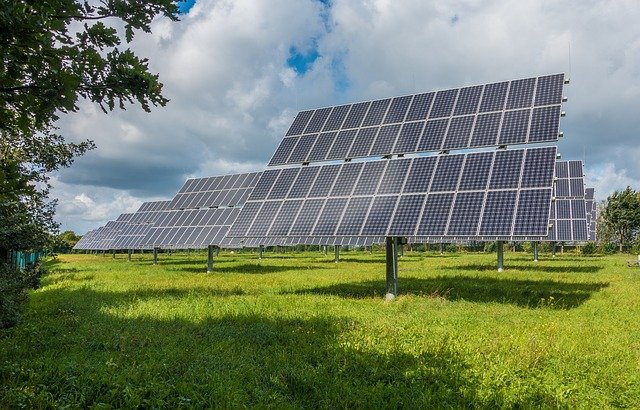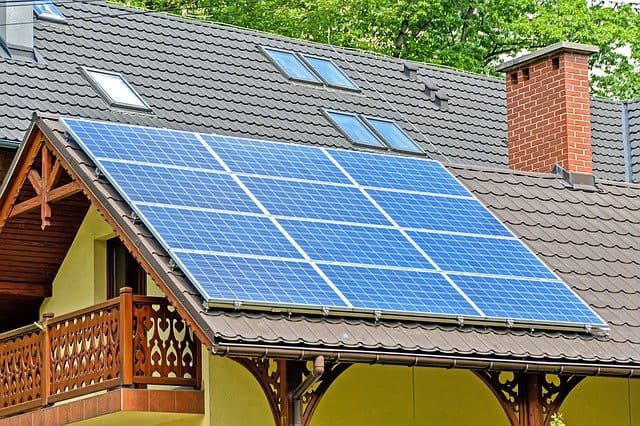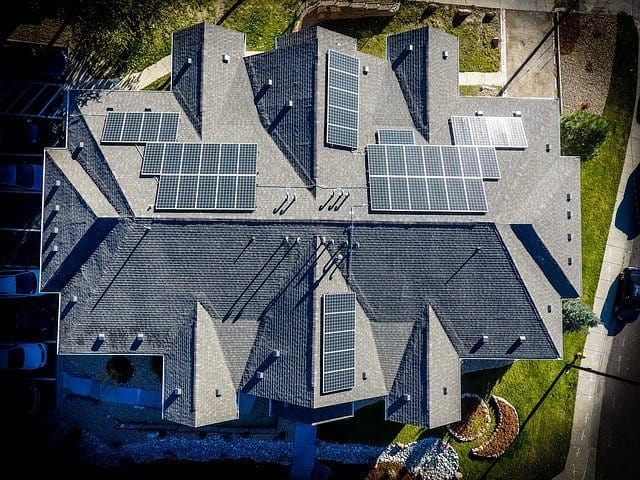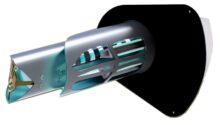
When it comes to renewable energy and sustainability, there isn’t any type of energy source that can come even remotely close to solar. Solar energy is an abundant resource that we can tap into virtually anywhere.
We have the potential to harness the sun’s energy in a variety of ways, but installing solar panels on our homes remains one of the most affordable and accessible options for those who want to make their home more environmentally friendly and cost-effective.
If you are interested in installing solar panels on your home but aren’t sure whether leasing or buying is a better option for you, this article will give you all the information you need. Keep reading to learn more about leasing vs. buying solar panels pros and cons.
Contents
- 1 How do leasing solar panels work?
- 2 Leasing solar panels vs buying
- 3 What are the pros and cons of leasing solar panels?
- 4 How much is a solar lease per month?
- 5 How often do solar panels need to be cleaned
- 6 How long do solar panels last
- 7 Pros and cons of buying a house with solar panels
- 8 How to decide if you should lease or buy solar panels
- 9 Conclusion
How do leasing solar panels work?
The main difference is that when you buy a solar system, you are purchasing it outright. When you lease a solar system, you are making a long-term rental agreement that gives you full access to all the system’s benefits. There are a variety of different solar leasing companies out there with various terms and conditions, but at the end of the day, leasing a solar panel system works the same way for everybody. You pay a monthly fee that covers the cost of maintenance, repairs, cleaning, and system upgrades. You have to pay this fee regardless of how much energy you get from the panels. The cost of leasing a solar panel system will be a bit higher than the cost of buying a system because you have to pay for that up-front cost over a longer period of time.

Leasing solar panels vs buying
Leasing solar panels is very different from buying solar panels. Leasing a solar panel system does not provide any rights or ownership over the system, which means you will not be able to sell the panels at a later date. Your solar lease payments will be part of your home’s mortgage.
If you break the lease, you may have to pay a fee to break the contract. Most homeowners make the mistake of thinking that solar panel leasing is the same as buying. The two are opposites.
When you buy solar panels, you own the panels and the energy they produce. When you lease solar panels, you are entitled to use energy produced by the panels, but you do not own the panels themselves.
What are the pros and cons of leasing solar panels?
Pros
Convenience: One of the biggest advantages of solar leasing is that it is extremely convenient. You don’t have to worry about maintenance, repairs, or cleaning the panels. When you lease solar panels, your lease provider will be responsible for all these things.
No up-front costs: Another benefit of leasing rather than buying solar panels is that you don’t have to come up with a large amount of cash upfront. Leasing companies will often provide you with a zero-down lease. You will, of course, have to make monthly payments, but the payments will be a lot lower than the money you would have to come up with for a solar panel system purchase.
No risk: When you buy a solar panel system, you have to worry about future repair costs and system resale value. But with a solar lease, there is no risk because your lease payments will include all of these expenses.
Cons
The biggest downside to leasing solar panels is that you don’t own them. This means that if you decide to sell your home and move, or if anything else changes in your life, you’ll have to find a new way to get your power.
The other big downside of leasing solar panels is that they are much more expensive than they were just a few years ago.
You might not be able to get the best deal on your system by leasing it. Solar leasing companies often offer lower rates than you’d get if you purchased the system yourself, but they can also pay less for a system than what they charge customers.
If your electricity company offers net metering (which gives customers credit for excess energy produced by their solar panels) or other incentives for using renewable energy, you may be better off buying the system and paying less for electricity over time.
The primary drawback to solar leasing is that you may not be able to take advantage of solar tax credits.
Solar leasing companies frequently don’t offer tax incentives because they don’t own the system. This can make it challenging to save money on your taxes by claiming a tax credit or deduction on your federal income tax return.
How much is a solar lease per month?
The monthly lease cost will depend on many factors, including the size of your home and the amount of energy you want to produce. You can get a quick estimate for your home’s potential solar lease payments by filling out a solar cost calculator.
You will be asked to provide information about your home’s location, the size of your roof, how much energy you use, and your average monthly energy bill. Once you enter this information, the calculator will calculate how many solar panels you need and how much it will cost to lease them.
How often do solar panels need to be cleaned
Solar panels need to be cleaned every year or so to ensure they are operating at peak efficiency. Most solar panel cleaning companies will offer this service for a small fee that is usually included in your monthly lease payments.
It is recommended to clean your solar panels in the fall rather than at the end of their 3-5 year lease term because they will be more efficient during the fall sun harvest, which outweighs the increased cleaning costs. Some companies offer a free cleaning service for their customers, so you might want to ask your solar panel provider about this.
How long do solar panels last
Solar panels have a lifespan of about 30 years, which is about the same as a roof. While some solar panels may last a bit longer than 30 years, most will stop producing at peak efficiency and generating an adequate amount of energy much sooner.
The best way to determine how long your solar panels will last is to conduct an annual panel inspection, which you can do yourself or have a professional do for you. If you notice any signs of wear or damage, you should get the panels cleaned, inspected, or repaired as soon as possible.
Solar panels require very little maintenance, but proper care and cleaning can significantly increase their lifespan.

Pros and cons of buying a house with solar panels
Pros
Increased home value: One of the biggest benefits of buying solar panels is that they will increase the value of your home. This is especially true if you purchase a rooftop solar panel system.
Saves money: Solar panels will save you a lot of money on your monthly energy bills, and they can even help you avoid costly and lengthy utility shutoff periods.
Reduced dependence on the grid: Solar panels can help you become less dependent on the grid. This is especially true for people who live in areas with low electricity rates.
Long-term investment: When you buy a solar panel system, you will get a big return on your investment over time. You will also be helping the environment and contributing to a more sustainable future.
Cons
The biggest disadvantage of buying a house with solar panels is that the cost of the panels is not tax-deductible. If you are buying a home and can afford it, it may be worthwhile to get solar panels installed and use them, even if they don’t pay for themselves in the first year or two.
A second disadvantage of buying a house with solar panels is that if you later want to sell your home, you will need to get an appraiser who knows how to value the solar panels. This can make selling your home harder than it would otherwise be, especially if you have a buyer who would like to buy the house but not keep them installed after the sale.
Thirdly, if you are considering buying a house with solar panels and then selling it later on, bear in mind that if you do sell your home, then there will be less money available for any upgrades or repairs you might need to make when moving into another property.
How to decide if you should lease or buy solar panels
If you want to know whether you should lease or buy solar panels, you have to do a bit of math. This is not something you wish to do on the fly, so it’s best if you make a spreadsheet or table to work out the numbers for you. This will help you make a more informed decision.
You should also be aware that things like your home’s energy usage, your home’s roof size, and local energy rates will affect your decision. If you have decided to go solar, you might be wondering if you should lease or buy solar panels.
This is a common question that many people ask themselves, and the answer to this question varies depending on several factors.
Conclusion
This is why many homeowners are choosing to lease solar panels rather than purchase them outright. Whether you’re looking for more information about leasing solar panels or would like to know how this decision can help you reduce your monthly costs, I hope that you found this article useful in your search for the best sources of information.
In sum, leasing solar panels is certainly a great option for those who want to try solar power without making a large financial commitment. However, it’s important to understand the terms and conditions of any leasing agreement before agreeing to it.
Always do your homework before making this decision and explore all possibilities that are available to you.
In the end, solar leasing comes down to your personal preference. There are benefits and drawbacks to every decision. The significant thing is that you have all the information you need to make an informed decision before acting. It’s up to you to decide what works best for you and your energy usage.
For any clarifications about leases or other options, feel free to ask them in this blog post comments.


